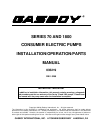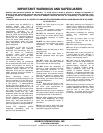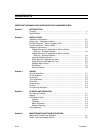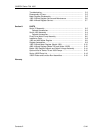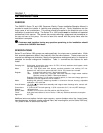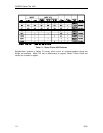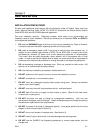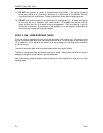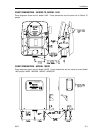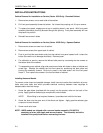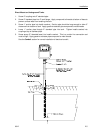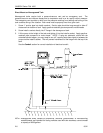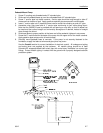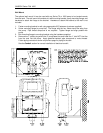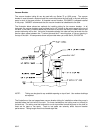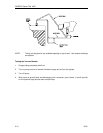
9312 2-1
Section 2
INSTALLATION
INSTALLATION PRECAUTIONS
All tanks and installations must conform with all building/fire codes, all Federal, State, and Local
codes, National Electrical Code, (NFPA 70), NFPA 30, Automotive and Marine Service Station
Code (NFPA 30A) and NFPA 395 codes and regulations.
Plan your installation carefully. Dispensing troubles, which seem to be pump-related, are
frequently traced to faulty installation. Review the following list of installation
DO's
and
DON'T's
to avoid potential problems:
1.
DO
read the
WARNINGS
page at the front of this manual, preceding the Table of Contents.
It contains important information regarding the safe use of your pumps.
2.
DO
install an emergency power cutoff, if the pump is used for other than personal use. In
addition to circuit breaker requirements of NFPA 70 and NFPA 30A, a single control which
simultaneously removes AC power from all site dispensing equipment is recommended.
This control must be readily accessible, clearly labeled, and in accordance with all local
codes. In order to provide the highest level of safety, we recommend that all employees be
trained as to the location and procedure for turning off power to the dispensing equipment.
3.
DO
use breakaway couplings on discharge hose. While not required for tanks under 1100
gallons, use is recommended for safety reasons.
4.
DO
have the pump installed by a competent installer/electrician.
5.
DO NOT
experiment with a pump if you are not sure the installation is correct.
6.
DO NOT
overload sub- or main breaker panels.
7.
DO NOT
install any underground piping without proper swing joints. (Always use shoulder
nipples, never close nipples).
8.
DO NOT
cover any lines until they have been both air- and liquid-tested.
9.
DO NOT
back-fill the tank or supply line with cinders or ashes. (Back-fill with clean sand,
crushed rock, or pea gravel).
10.
DO NOT
use black iron pipe or fittings for underground installations. (Use only new
galvanized or fiberglass* pipe and fittings). *Install all fiberglass pipe and fittings according to
manufacturer's specifications and requirements.
11.
DO NOT
use power line wiring of inadequate capacity. (Use gauge specified by the wiring
diagram or wire chart provided in Section 3).
12.
DO NOT
use a circuit breaker of improper size. (See Section 3).
13.
DO NOT
install fill pipe to tank where it can be submerged with standing water.
14.
DO NOT
use the GASBOY fuel dispensing equipment to remove water ballast from the
storage tank.



